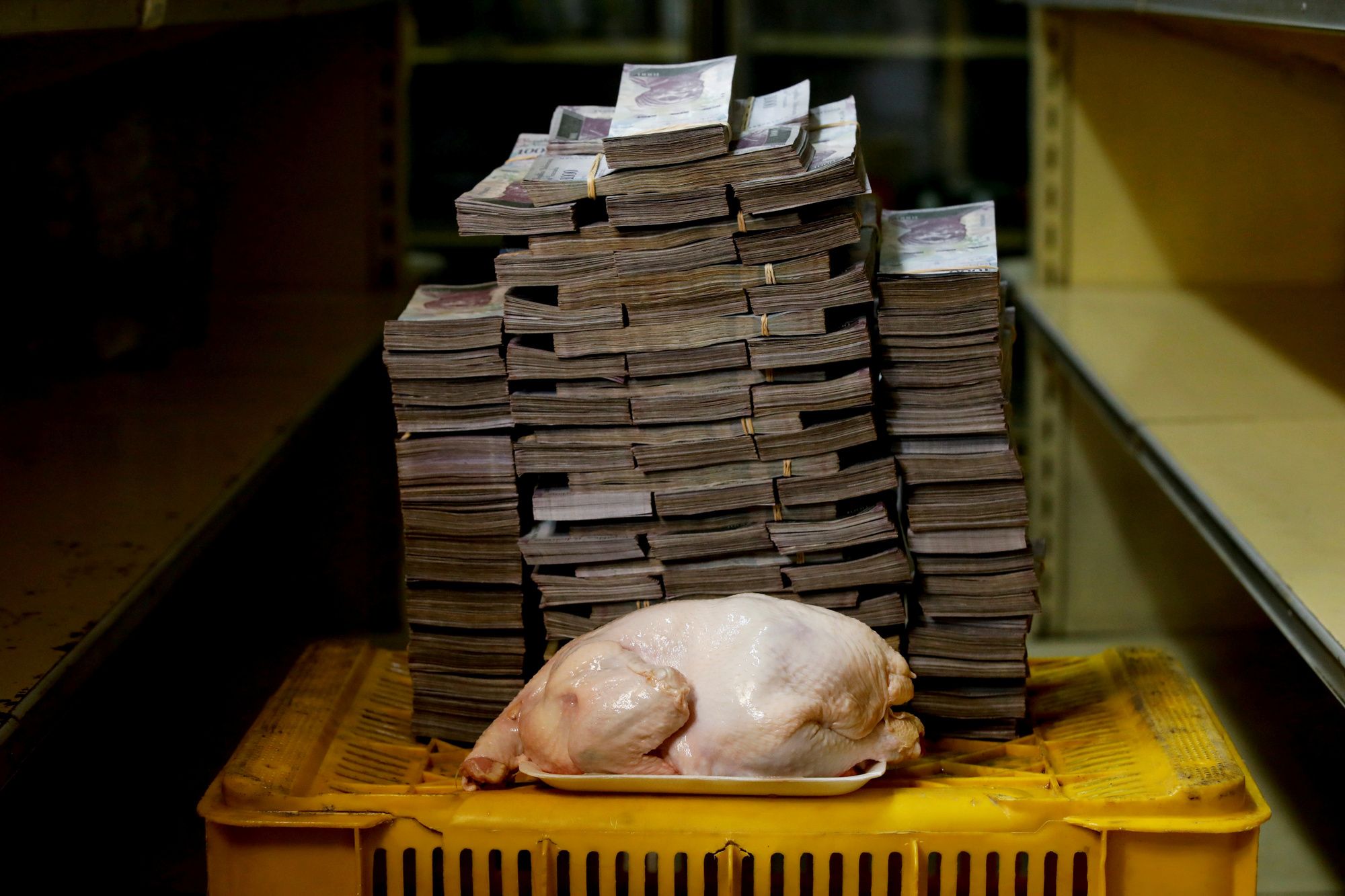Venezuela’s Socialist Establishment Bares its Ugly Fangs with Parasitic Crypto Tax

Nicolas Maduro and the government of Venezuela have levied a massive tax on crypto transactions. | Source: Shutterstock
After years of hiding behind the fig leaf of socialism and revolutionary anti-imperialist rhetoric, the embattled Venezuelan government of Nicolas Maduro has shown its true colours with a new 15 percent tax on cryptocurrency transactions that may be best described as opportunistic, if not an act of outright tyranny.
Venezuela’s New Cryptocurrency Tax

At a time when Hugo Chavez’ successor is facing an unprecedented challenge to his legitimacy, with U.S-backed opposition leader Juan Guaidó gaining more international recognition, the move underlines his government’s culture of economic vandalism that has turned South America’s largest oil producer into a basket case with the world’s least usable national currency.
The new policy, announced in the country’s official Gazette, issue No. 41581 quotes the Venezuelan National Superintendence of Crypto Assets and Related Activities (SUNCRIP) as saying:
“The sender of the remittances referred to in this ruling is obliged to pay a financial commission in favor of SUNCRIP up to a maximum amount of 15% calculated on the total of the remittance.”
While that sounds bad enough already, there’s more. The decree gives SUNCRIP the power to set transaction limits in addition to arbitrarily levying transaction tariffs of up to 15 percent. According to the announcement, SUNCRIP has set a crypto transaction limit of $600 per month, beyond which the sender will require permission from SUNCRIP up to a hard limit of the value 50 units of its ridiculous Petro cryptocurrency ($3,000).
In plain English, what this means is that Venezuelan crypto users can now expect to pay up to 15 percent of the value of their transactions to Maduro’s government, with the amount they can send restricted to just $600 a month. To send between $600 and $3,000 a month, they will then need permission from Maduro’s government, which essentially means that in order to realistically enjoy a standard of living greater than $20/day in Venezuela, you now need a government waiver.
It will be recalled that Venezuela initially made headlines for becoming the world’s first country to adopt a crypto-first financial architecture, with the Petro ICO which either fell flat on its face or made up to $5 billion, depending on who you ask. With this move, however, Maduro’s government has signaled that its adoption of the Petro was not born out of any desire to genuinely ease economic woes using technology, but was merely a ploy to hoover up enough money to keep them in power as the country collapsed around them.
Economic Brigandage Dispenses with Socialist Fig Leaf

There are two interesting points about the new crypto transaction tax that immediately stick out. The first is that by so doing, Maduro’s government has dispensed of any official pretense that it has any plans to rescue the bolivar or introduce any real economic reforms that would encourage Venezuelans – among the world’s most prolific crypto adopters – to return to fiat.
This tax is a blatant attempt to feed parasitically off a purely grassroots-driven innovation that has saved hundreds of thousands of Venezuelans from literal starvation while their government-issued press releases and Maduro gesticulated for TV cameras.
After Venezuelans have discovered crypto out of necessity amidst the incompetence and/or malfeasance of their government, said government now believes that it has the right to levy a purely parasitic tax on innovation it did not help along in any way.
The second and more striking point is that the new tax will be paid using whatever cryptocurrency Venezuelans transact in, but the tax will be levied in Petro. What this means effectively is that the Petro – assigned a seemingly arbitrary value of $60 – 1 PTR – will be artificially inflated by tax receipts collected across a basket of cryptocurrencies. Instead of letting Venezuelans decide its value for themselves using the demand and supply mechanism, Maduro’s government is effectively using state power to create demand and trading volume for its virtual monopoly money.
Time to Call it Quits with Chavez-Type ‘Socialism’

Expectedly, several Venezuelan citizens have taken to social media to decry this decision, but as usual, their opinion on the issue is unlikely to be heard, sought or respected. Six years after the death of Hugo Chavez, it would seem as if his grand legacy is a decimated economy, hyperinflation of 1.29 million percent and counting, and a mafia-like government lacking legitimacy whose only mission in office is to entrench itself in power at the expense of the Venezuelan people.
While the jury is still out on the suitability of what has been described as the latest U.S.-backed South American coup as a means of ousting Maduro, it is becoming increasingly evident that the status quo is not a tenable solution tenable either. When Señor Maduro eventually decides to let go of power, leaving Venezuela to begin its long journey toward some semblance of economic recovery, it may also be time for the world to admit that the Hugo Chavez experiment has failed.
No son socialistas en absoluto!
Disclaimer: The views expressed in the article are solely those of the author and do not represent those of, nor should they be attributed to, CCN.com.
Featured Image from Shutterstock